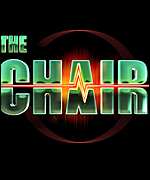The Chair
Contents |
Host
Paul Hendy (non-broadcast pilot)
John McEnroe
Broadcast
Touchdown/BBC for BBC1, 31 August to 9 November 2002 (10 episodes)
Synopsis
Famously hot-headed American tennis player and commentator John McEnroe challenges people to answer questions and keep their cool whilst the tension and cash ramps up.
Players have their resting heart-rate monitored before going into The Chair. They're given 170% of this as their initial "redline" figure. Every time they get a question correct they win cash. However, the contestant also has to keep beneath their "redline" heart-rate, failure to do so means having your cash drain away and you can't give a response to a question until you're within the limit again. After each question the "redline" figure is reduced by 5%. The only real rule was that the player in The Chair had to keep their eyes open (presumably closing them provides a calming effect). A loved one was on hand to offer vocal support.
If a contestant answers everything correctly, they could leave with £50,000. The structure of the game was:
- Question one was a multiple choice question. A correct answer would net an extra £1,000 and redlining would cost £10 a second.
- Question two was another multiple choice question worth £1,500 and the redlining would cost £20 a second.
- There would be a Heartstopper interval at this point. The player was given 45 seconds of quickfire questions, each one would add an extra beat to their redline rate. Whatsmore, there is no redline penalty for this interval.
- Question three is an observation question. The player is shown a lot of abstract images and is then asked a question about one of them. A correct answer is worth another £2000, redlining dropping the prize at £30 a second.
- If a player got any of the first three questions wrong then they would leave with nothing. After question three they are given a Stabilizer, which they can play once at any point up until question six and before the question is asked. This is a prize safety net, and if they do get a question wrong then they will go home with whatever has been stabilized. BUT! This can still be redlined away and if the prize fund drops beneath the stabilized level then the safety net will lower to match it. The advantage of saving your stabilizer until later is that it means you should get more money if you do get one wrong. But if you've waited to play it and get a question wrong in the interim, you leave with nothing.
- Question four is a multiple choice worth £3,000 and a £50 a second redline penalty.
- Question five is a list question where the player has to list X amount that fits into list Y. £100 a second is the penalty.
- A second heartstopper. This time the special effects department show off for twenty seconds in a bid to push the contestant over the red line. We're rather disappointed about the lack of baby crocodile that would be lowered towards the the contestant as happened in the American show, and we're rather baffled by a large pendulum you can clearly see in some shots but never actually got used during the series.
- Question six is multiple choice with a £12,000 prize and a whopping £500 a second redline penalty.
- The final question was worth £24,000 and came with a £1,000 a second penalty.
The rising penalties always meant you were only ever about 50-60 seconds away from losing the lot which towards the end of the game always seemed incredibly harsh, especially as it gets harder and harder as the game progresses. In fact it was often worth throwing an answer late on to ensure you went home with something rather than redline everything away. To its credit, it was incredibly tense and exciting when it looked like someone might beat The Chair. As we recall, someone walked away with the full £50K and one or two walked away with just under it.
The set was very impressive. Contestants walk down a white tunnel to The Chair where they are set up. The chair then rises into the auditorium which we believe was meant to signify Hell. The audience surround on all sides, and also surrounding the chair are lots of what could be bunsen burners which flare up when necessary. Standing at the podium in front of the player is the Devil himself (that's McEnroe) and above him is a giant screen - the player will be pretty horizontal throughout so that's what they'll look at. When the player has finished, they are lowered back down and they can walk off down the white tunnel back to reality. It's exactly the same as the US show's set, in fact.
Each show was made up of different contestants from different recordings and one of the more disappointing things about the show is that you could have a good guess as to how someone will do depending on how near to the end of the show they're put on. We never liked that sort of thing.
Whilst the show is rather flawed it's nice to see a show that, thinking about it, gave a distinct advantage to those who quite like their food. Unlike us of course. Ahem.
Inventor
Julie Christie


